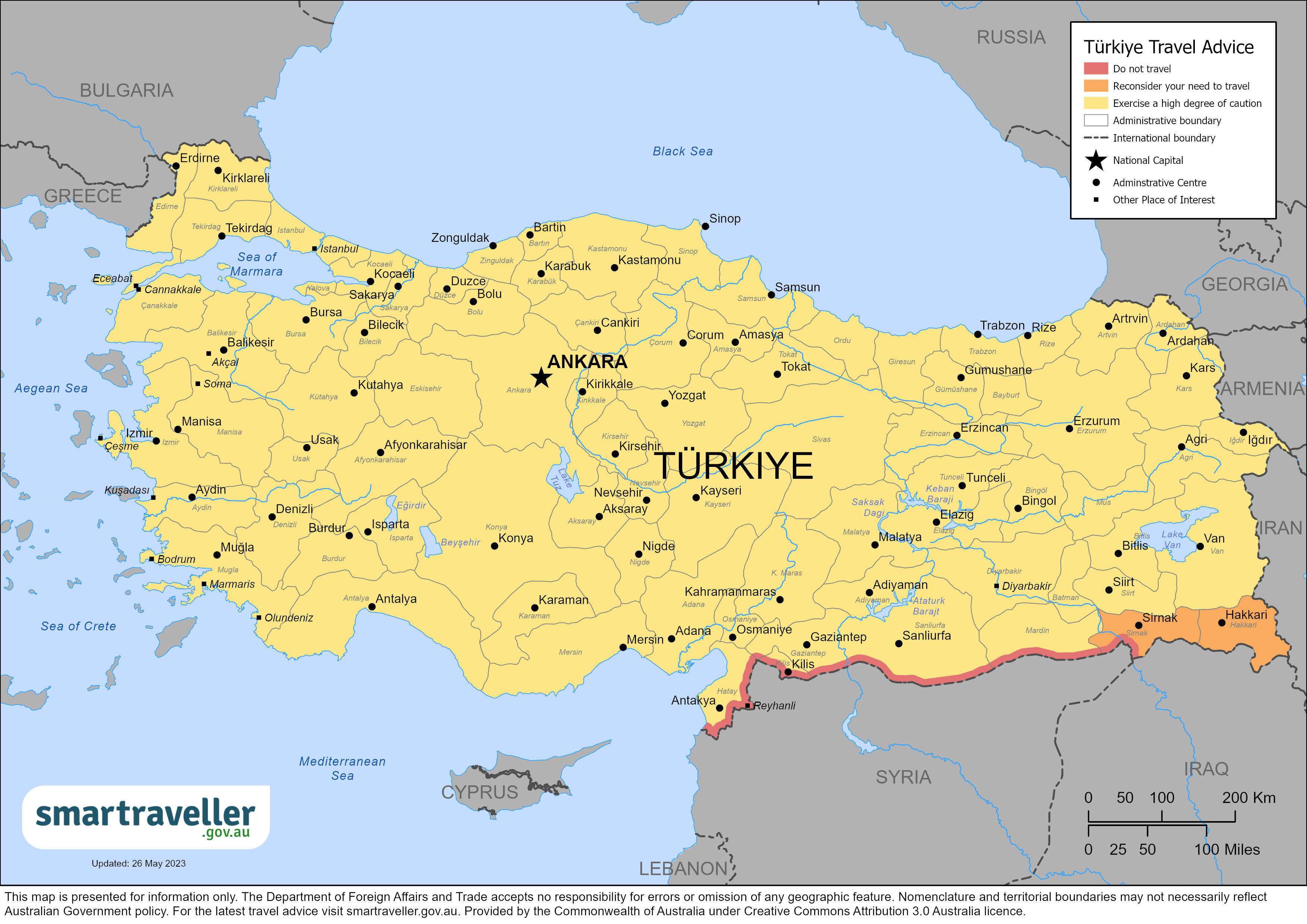Medical Tourism
Each year, many Australians travel for medical tourism.
Unfortunately, things don’t always go as planned. We’re aware of several cases in recent years where Australians have experienced serious complications after their procedures in Türkiye.
If you’re considering undertaking medical treatment in Türkiye, you should do your research including on whether your insurance will cover you. Read our advice on travelling overseas for medical tourism before you go.
The HealthTürkiye portal lists the medical providers authorised by the Turkish Ministry of Health. We can’t provide recommendations or endorsements for any particular health providers. You should discuss your plans carefully with your Australian doctor, dentist or hospital specialist before committing to any procedure overseas.
More information:
Insect-borne diseases
Malaria is a risk from May to October in:
- Amikova
- Çukurova Plain
- the south-east
There’s no malaria risk in the main tourist areas in the west and southwest of the country.
Other insect-borne diseases occur, including:
CCHF is common in:
- central Anatolia to the north
- east of Ankara
Seasonal summer outbreaks of CCHF have been fatal.
To protect yourself from disease:
- make sure your accommodation is insect-proof
- use insect repellent
- wear long, loose, light-coloured clothing
Consider taking medicine to prevent malaria.
Bird flu (avian influenza)
Human deaths from bird flu (avian influenza) have been confirmed in Türkiye.
Talk to your doctor about bird flu as part of your pre-travel health checks.
Measles
Measles cases routinely occur in Türkiye, with the country experiencing increased measles activity. Make sure your vaccinations are up-to-date before you travel.
More information:
Other health risks
Waterborne, foodborne, and other infectious diseases occur, including:
Serious outbreaks sometimes occur
To protect yourself from illness:
- drink boiled water or bottled water with sealed lids
- avoid ice cubes
- avoid raw and undercooked food, such as salads
- avoid unpasteurised dairy products
- avoid contact with dogs and other mammals
If you’re bitten or scratched by an animal, get medical help immediately.
Seek medical advice if you have a fever or are suffering from diarrhoea.
More information:
Poisoning from alcoholic drinks
Locals and travellers have reported poisoning from alcoholic drinks. Drinks may be contaminated with harmful substances, including methanol.
Locals and travellers have become seriously ill after drinking contaminated alcohol.
Consider the risks when drinking alcoholic beverages, particularly drinks made with spirits.
Labels on bottles aren’t always accurate.
To stay safe:
- drink only at reputable licensed premises
- avoid home-made alcoholic drinks
Symptoms of methanol poisoning can be similar to the effects of drinking too much. This includes fatigue, headaches and nausea.
If you suspect that you, or someone you’re with, has been poisoned, get urgent medical attention. It could save you from permanent disability or death.
- Report suspected cases of methanol poisoning to the police.

